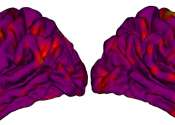Chronic stress during pregnancy prevents brain benefits of motherhood, study shows
A new study in animals shows that chronic stress during pregnancy prevents brain benefits of motherhood, a finding that researchers suggest could increase understanding of postpartum depression.
Oct 14, 2012
2
0




